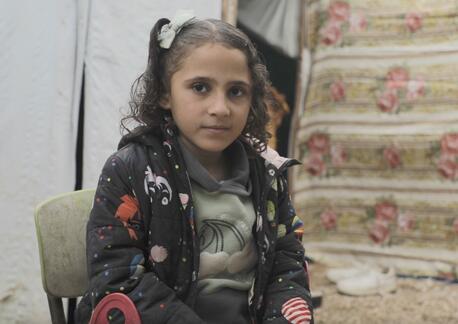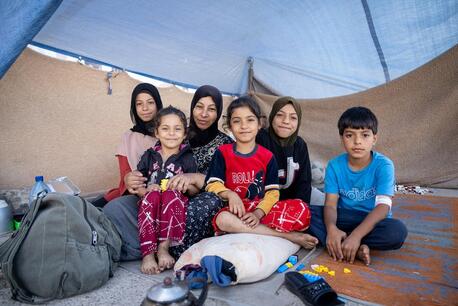
Impact of Hostilities on Lebanon's Children: Loss and Uncertainty
Hundreds of thousands of children and their families have been displaced by ongoing conflict in Lebanon. UNICEF is there, providing emergency assistance, but much more help is needed.
“We could see the rockets above us. We saw them while we were running,” Zeinab says as she recalls the moments after she and her children fled from her aunt’s home. “We saw them and just kept running.”
Zeinab is one of more than a million people who have been displaced by the sharp escalation of hostilities in Lebanon. Around 190,000 people are estimated to be staying in shelters across the country, while hundreds of thousands more are seeking safety with family and friends. But many, like Zeinab and her children, have no choice but to sleep on the street.
“Our house in Beirut is gone. There is no home now,” she says.
Our house in Beirut is gone. There is no home now. — Zeinab, a mother living with her children on the sidewalk
After fleeing Beirut, the family initially took refuge in the northern city of Tripoli. But after being crammed into a single room with 17 people for several days, Zeinab decided to return to Beirut with her children. She lives on the sidewalk now, huddled with her children.
“We’ve been here for ten days,” she says. “Of course, we’re not happy sleeping here. But we had no choice.
“My sister and I went looking for a blanket to borrow from people," Zeinab continues. "Someone lent us two blankets, and we slept on them. We stayed up until 3 a.m. just searching for a blanket.”
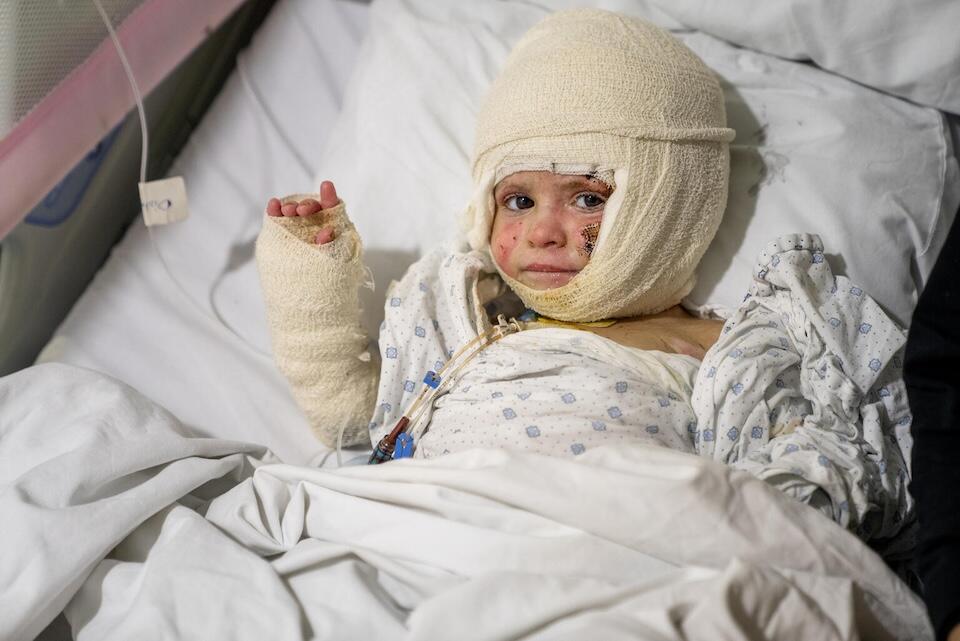
Children remain caught in the crosshairs
More than 1,088 children were injured and 155 children killed as the situation deteriorated from mid-September to Oct. 22, 2024, according to UNICEF Lebanon's latest situation report.
In Deir Qanoun al-Nahr, southern Lebanon, 2-year-old Ivana and her sister Rahaf, 7, were playing on the balcony of their home while their mother, Fatima, prepared breakfast when an air strike hit a building nearby, setting the house on fire. Both girls suffered severe burns.
I had to throw my daughters out of the window into the garden to save them from the fire. It was our only way to escape. — Fatima, mother of two
"I had to throw my daughters out of the window into the garden to save them from the fire. It was our only way to escape," says Fatima, still amazed that she was able to act so quickly in such a terrifying moment.
Rahaf spent 20 days in the hospital before being released. Ivana is still recovering at Geitaoui Hospital. Doctors have reassured the family that her burns will heal over time. She has already undergone a skin graft and speaks daily with her sister Rahaf, who calls to check on her.
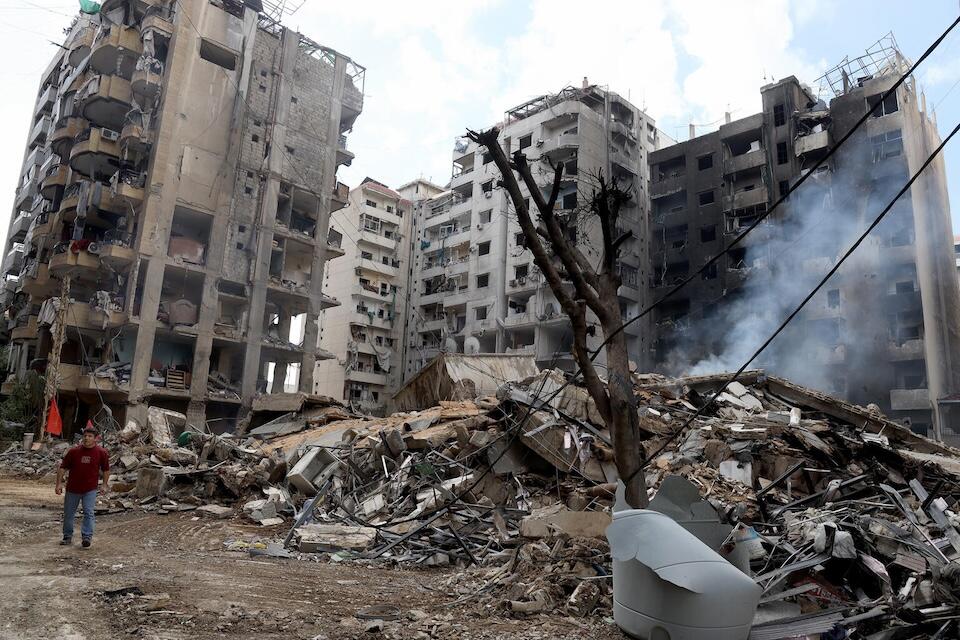
UNICEF and partners are rushing to meet the needs of children caught in a spiraling crisis
UNICEF teams are on the ground and working around the clock with partners to help children and families meet some of their basic needs.
In the first month of mass displacement, UNICEF supported 584 collective shelters hosting 101,492 internally displaced people with relief items and services, including access to water, hygiene, health and child protection.
UNICEF support for children and families in Lebanon includes:
- providing bottled and trucked water and hygiene kits
- supporting public water facilities serving 370,000 people
- connecting displaced families with primary health care services
- Identifying injured children to provide them with critical protection services
- delivering medical supplies to help pregnant women and injured children
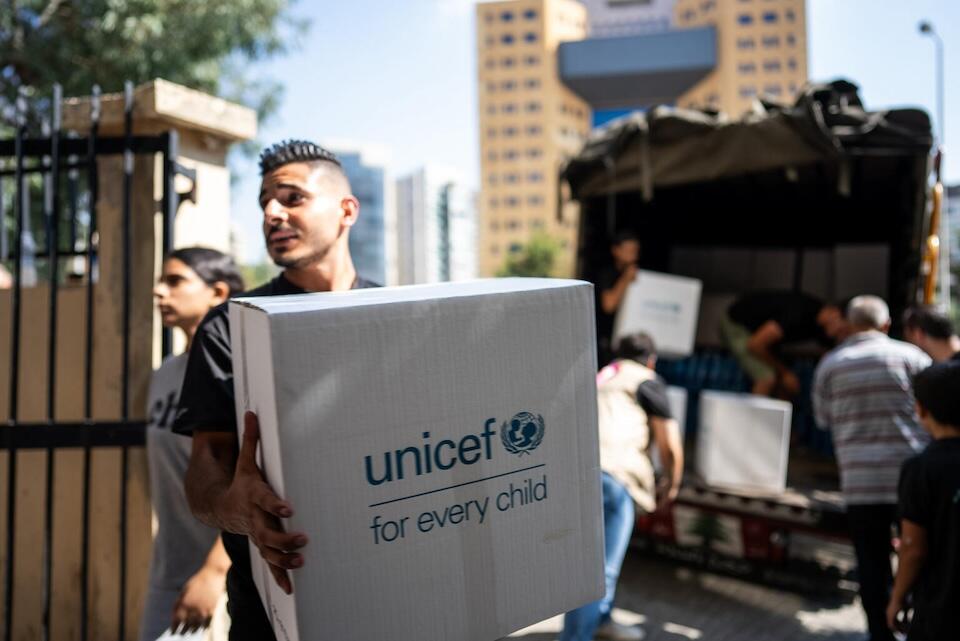
Every displaced child has a story
As the conflict has worsened, the psychological toll on the population, particularly children, has spiraled. Almost every child in Lebanon has been impacted in some way.
Many have been victims of bombardments, losing loved ones, their homes or access to education.
An estimated 400,000 children have been forced from their homes. Many are staying in makeshift shelters hoping for a semblance of safety — some in public schools, others with anyone who can offer a roof and a place to rest. Some families have no option but to set up tents on the beach or the street.
Every child who has been displaced or injured has a story — of loss, of a life upended, of uncertainty for what lies ahead.
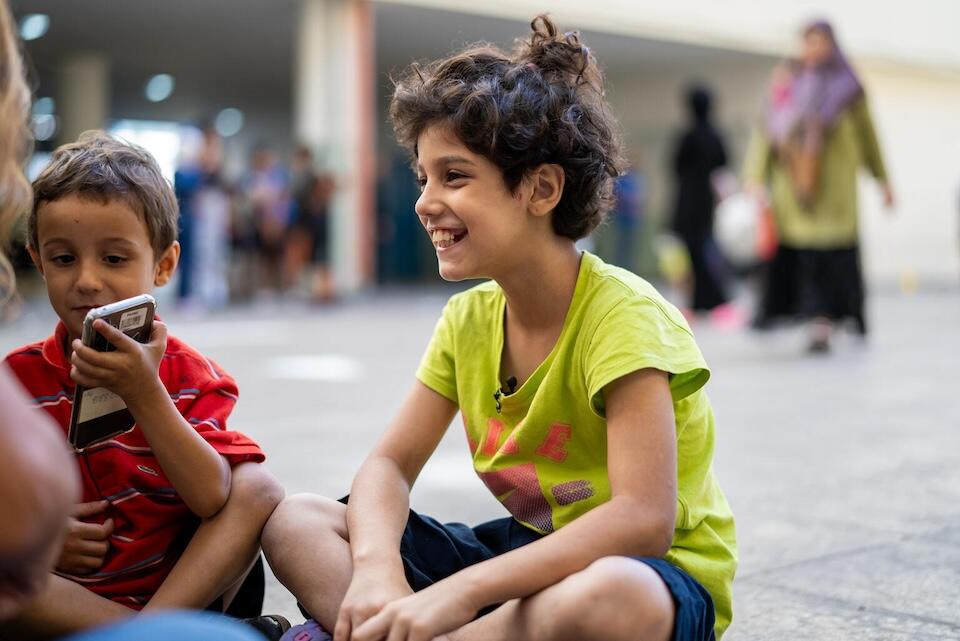
“If I’m destined to die, I’ll die, and if I am destined to live, I will live,” Ghazal, 9, says matter-of-factly. She fled from southern Lebanon to Beirut and recalls how simple life used to be — playing with her brother and friends, being able to take showers, have dinner and go to bed in peace.
Ghazal is particularly worried about her grandmother. “How could I know if she passed away now, God forbid? What would I do then?”
She also worries about the school she left behind.
I hope my school stays safe and doesn’t even get a single scratch because, in the end, it’s my school, and when I grow up, my future will be there. — Ghazal, 9
“I hope my school stays safe and doesn’t even get a single scratch because, in the end, it’s my school, and when I grow up, my future will be there,” Ghazal says.
“I don’t just want to play. I want to learn and study.”
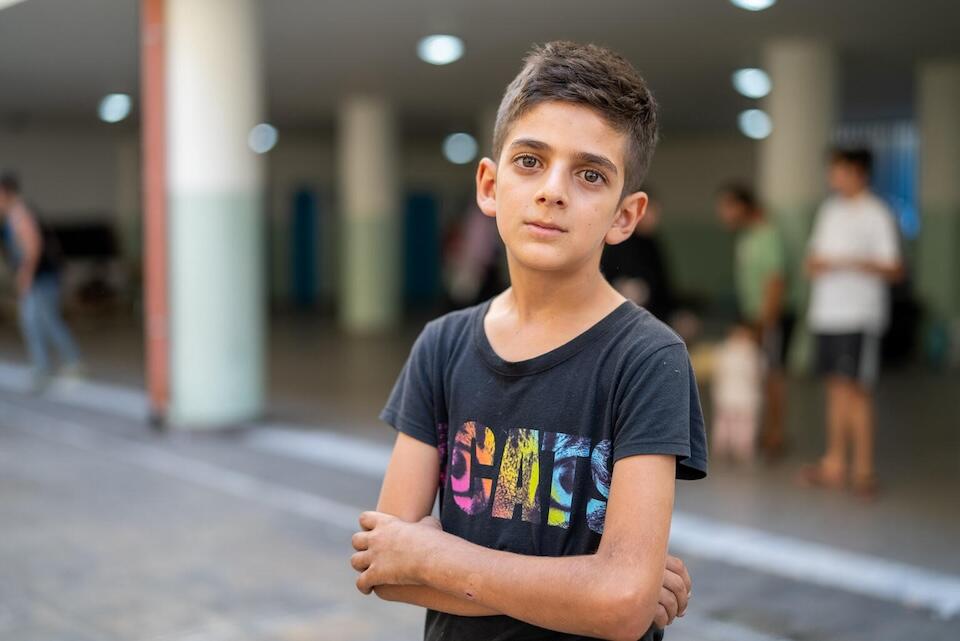
Eleven-year-old Abbas was hit by shrapnel during a missile strike near his home in southern Lebanon.
“I went out to see what happened, and all of a sudden, I looked at my hand and saw it was covered in blood,” he recalls.
“The sound was incredibly loud. It shattered our windows and destroyed everything.”
The sound was incredibly loud. It shattered our windows and destroyed everything. — Abbas, 11
Abbas used to raise pigeons at home and is anxious because he left them without food. There wasn’t time to tend to them or even pack up some clothes as he fled. “I don’t know if they’re alive,” he says. “I think about them every day, and I wish I could go back to check on them.”
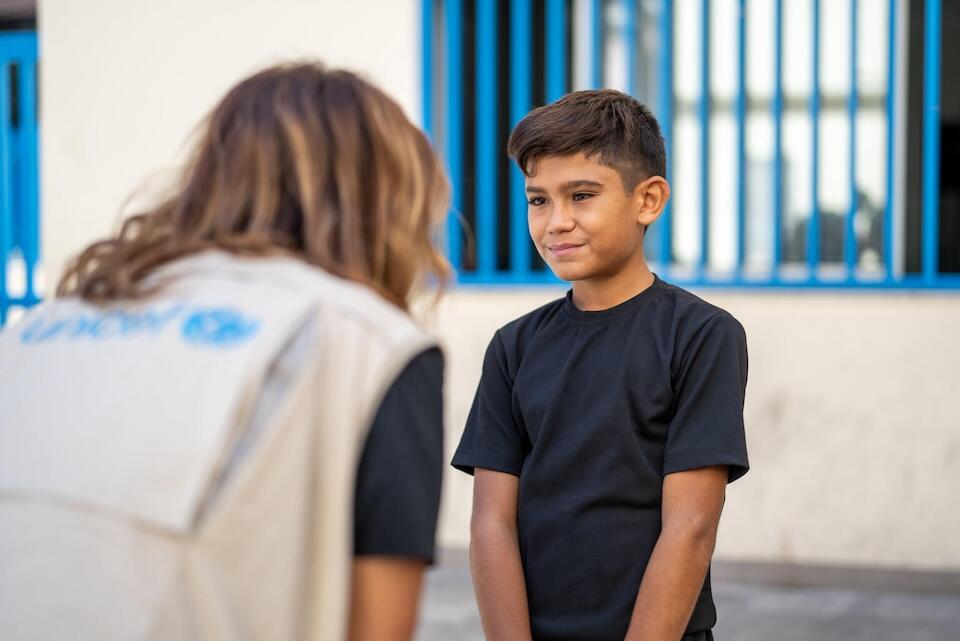
Mohammad, 13, also misses his home and hopes the war will end soon so he can go back to school. He had to leave after heavy bombing near their house. “I felt scared, as if the building was going to collapse on us,” he says.
Despite everything, Mohammad is still hopeful.
“I say, don’t be afraid. Because when the war ends, we’ll return to our homes and our schools.”
I say, don’t be afraid. Because when the war ends, we’ll return to our homes and our schools. — Mohammad, 13
Not every child on Lebanon’s streets has been displaced from their home – some children have been born amongst the chaos and devastation of this conflict.
Farah sits in a makeshift tent in downtown Beirut cradling her newborn daughter. She gave birth here after she was forced to flee her home.
“I’m very scared for my children. And for this child. And I’m afraid of this place,” she says.
“Look at this tent we are living in. Now the sky is cloudy, and if it rains, where will I take her?”
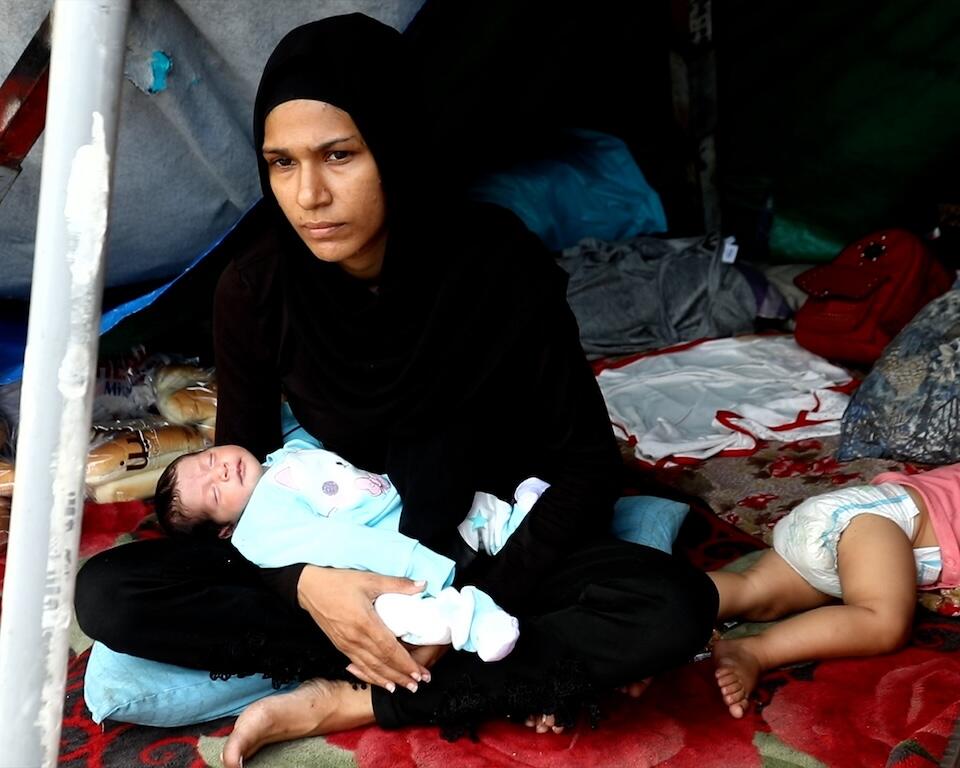
Humanitarian needs are growing every day
UNICEF's emergency response is ongoing, but the needs are enormous. Civilian infrastructure has been damaged, with increasing disruptions of public services. Around 1.2 million people have been affected by the conflict. Tens of thousands of families are living in perilous circumstances. Thousands of people remain on the streets of Lebanon without adequate shelter, bedding or clothing.
Seven-year-old Nathaly and her family have been staying in a shelter since they were forced to flee their home.
Every day, I hear the frightening sound of the planes and I ask my mom about it. — Nathaly, 7
“Every day, I hear the frightening sound of the planes and I ask my mom about it,” Nathaly says, adding she’s worried her family might be killed and that she’ll be left alone.
“That’s not right,” she says.
“I should stay with my family, sleep beside them and keep cuddling them, because that’s the best thing.”
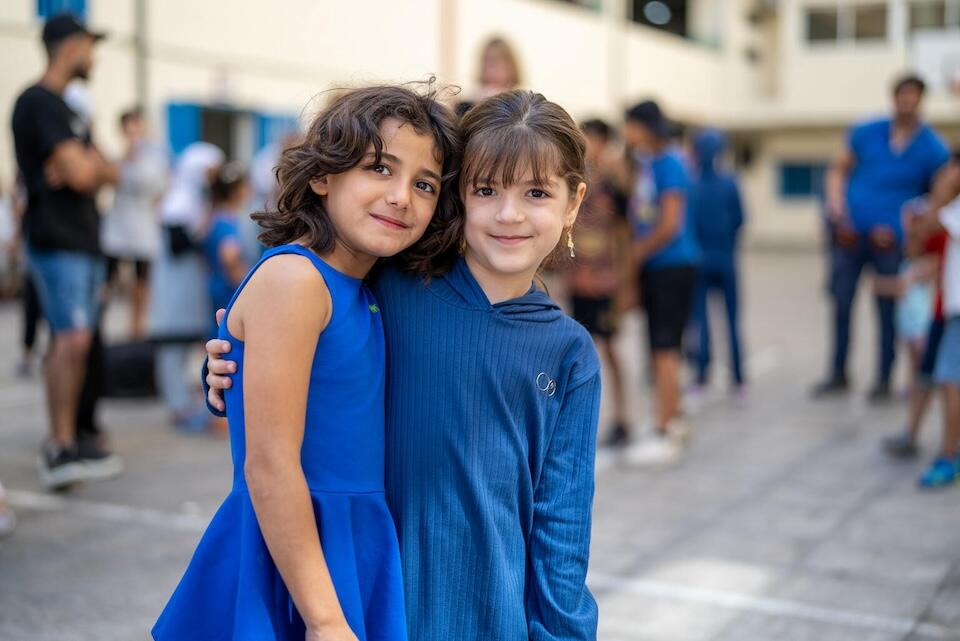
UNICEF works with partners around the world to ensure children are healthy, educated, protected and respected, so they can grow up to reach their full potential. Your contribution will make a real difference. Please donate today.
This story was adapted from unicef.org
HOW TO HELP
There are many ways to make a difference
War, famine, poverty, natural disasters — threats to the world's children keep coming. But UNICEF won't stop working to keep children healthy and safe.
UNICEF works in over 190 countries and territories — more places than any other children's organization. UNICEF has the world's largest humanitarian warehouse and, when disaster strikes, can get supplies almost anywhere within 72 hours. Constantly innovating, always advocating for a better world for children, UNICEF works to ensure that every child can grow up healthy, educated, protected and respected.
Would you like to help give all children the opportunity to reach their full potential? There are many ways to get involved.





